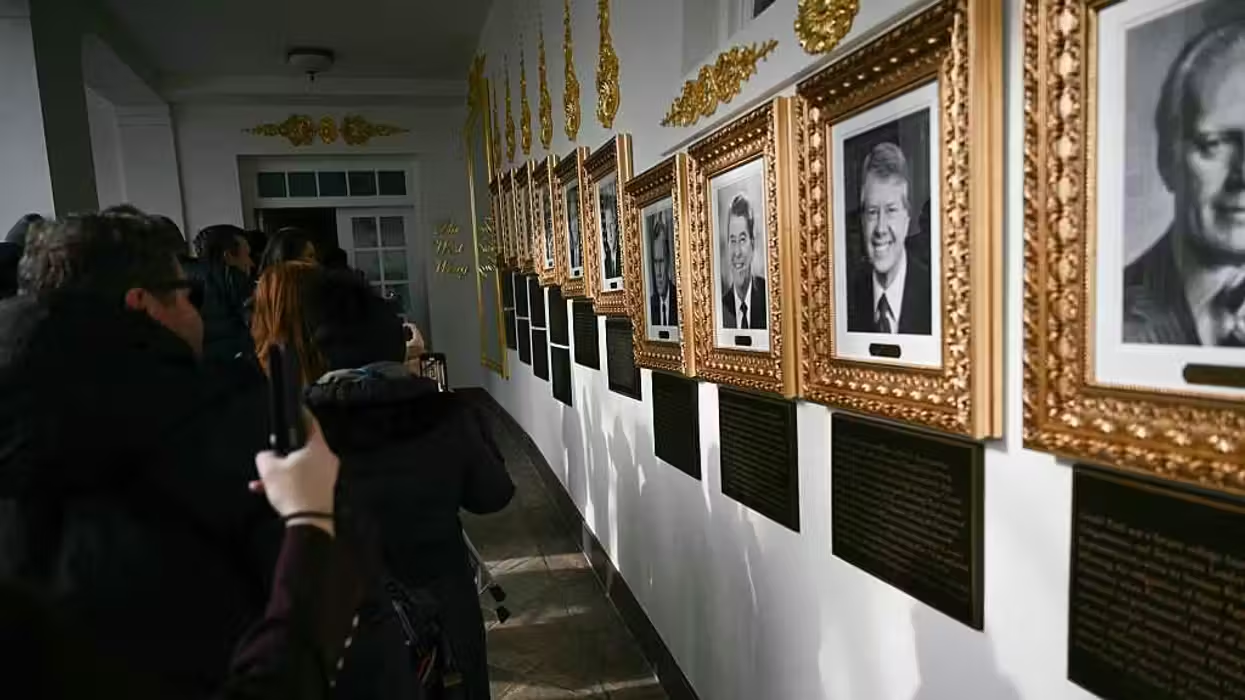
© 2025 Blaze Media LLC. All rights reserved.
CAIRO (AP/The Blaze) – Thousands of state workers and impoverished Egyptians went on strike Wednesday after weeks of anti-government protests cast a spotlight on corruption and the wealth amassed by those in power in a country where almost half the people live near the poverty line.
The protests calling for President Hosni Mubarak's ouster have been spreading since Tuesday outside of Cairo's Tahrir Square, where they have been concentrated for the past week. On Wednesday, demonstrators also gathered at parliament, the Cabinet and the Health Ministry buildings, all a few blocks from the square. Prime Minister Ahmed Shafiq was working out of the Civil Aviation Ministry on the other side of the city because his office was blocked by protesters.
For the first time, protesters were forcefully urging labor strikes despite a warning by Vice President Omar Suleiman that calls for civil disobedience are "very dangerous for society and we can't put up with this at all." His warnings Tuesday were taken by protesters as a thinly veiled threat of another crackdown.
Strikes erupted in a breadth of sectors — among railway and bus workers, state electricity staff and service technicians at the Suez Canal, in factories manufacturing textiles, steel and beverages and at least one hospital.
"They were motivated to strike when they heard about how many billions the Mubarak family was worth," said Kamal Abbas, a labor leader. "They said: 'How much longer should we be silent?'"
Egyptians have been infuriated by newspaper reports that the Mubarak family has amassed billions, and perhaps tens of billions of dollars in wealth while, according to the World Bank, about 40 percent of the country's 80 million people live below or near the poverty line of $2 a day. The family's true net worth is not known.
"O Mubarak, tell us where you get $70 billion dollars," dozens of protesters chanted in front of the Health Ministry.
Growing labor unrest is adding a new dimension to the pressures for Mubarak to step down. The protesters filling streets of Cairo and other cities for the past 16 days have already posed the greatest challenge to the president's authoritarian rule since he came to power 30 years ago. They have wrought promises of sweeping concessions and reforms, a new Cabinet and a purge of the ruling party leadership.
The strikes broke out across Egypt as many companies reopened for the first time since night curfews were imposed almost two weeks ago. Not all the strikers were responding directly to the protesters' calls. But the movement's success and its denunciations of the increasing poverty under Mubarak's rule resonated and reignited labor discontent that has broken out frequently in recent years.
 In Tahrir Square, the epicenter of the anti-government protests, at least 10,000 massed again on Wednesday, the day after a crowd of about a quarter-million proved that they had not lost momentum even as Mubarak clings to power. Visitors snapped pictures and took videos while vendors sold nuts, popcorn, Egyptian flags, sandwiches and drinks.
In Tahrir Square, the epicenter of the anti-government protests, at least 10,000 massed again on Wednesday, the day after a crowd of about a quarter-million proved that they had not lost momentum even as Mubarak clings to power. Visitors snapped pictures and took videos while vendors sold nuts, popcorn, Egyptian flags, sandwiches and drinks.
Efforts by Vice President Suleiman to open a dialogue with protesters over reforms have broken down since the weekend, with youth organizers of the movement deeply suspicious that he plans only superficial changes far short of real democracy. They refuse any talks unless Mubarak steps down first.
Showing growing impatience with the rejection, Suleiman issued a sharp warning that raised the prospect of a renewed crackdown. He told Egyptian newspaper editors late Tuesday that there could be a "coup" unless demonstrators agree to enter negotiations.
Although it was not completely clear what he meant by "coup," protesters heard it as a veiled threat to impose martial law — which would be a dramatic escalation in the standoff.
"We can't bear this for a long time," Suleiman said of the protests. "There must be an end to this crisis as soon as possible." He said the regime wants to resolve the crisis through dialogue, warning: "We don't want to deal with Egyptian society with police tools."
Suleiman, a close confident of the president, rejected any "end to the regime" including an immediate departure for Mubarak, who says he will serve out the rest of his term until September elections. Suleiman reiterated his view that Egypt is not ready for democracy.
Suleiman suggested Egypt was not ready for democracy, and said a government-formed panel of judges, dominated by Mubarak loyalists, would push ahead with recommending its own constitutional amendments to be put to a referendum. Those statements further deepened skepticism over his intentions.
Still, authorities continued to try to project an image of normalcy. Egypt's most famous tourist attraction, the Pyramids of Giza, reopened to tourists on Wednesday after a 12-day closure. But few came to visit — tens of thousands of foreigners have fled Egypt amid the chaos, raising concerns about the economic impact of the protests.
Want to leave a tip?
We answer to you. Help keep our content free of advertisers and big tech censorship by leaving a tip today.
Want to join the conversation?
Already a subscriber?
more stories
Sign up for the Blaze newsletter
By signing up, you agree to our Privacy Policy and Terms of Use, and agree to receive content that may sometimes include advertisements. You may opt out at any time.
Related Content
© 2025 Blaze Media LLC. All rights reserved.
Get the stories that matter most delivered directly to your inbox.
By signing up, you agree to our Privacy Policy and Terms of Use, and agree to receive content that may sometimes include advertisements. You may opt out at any time.






